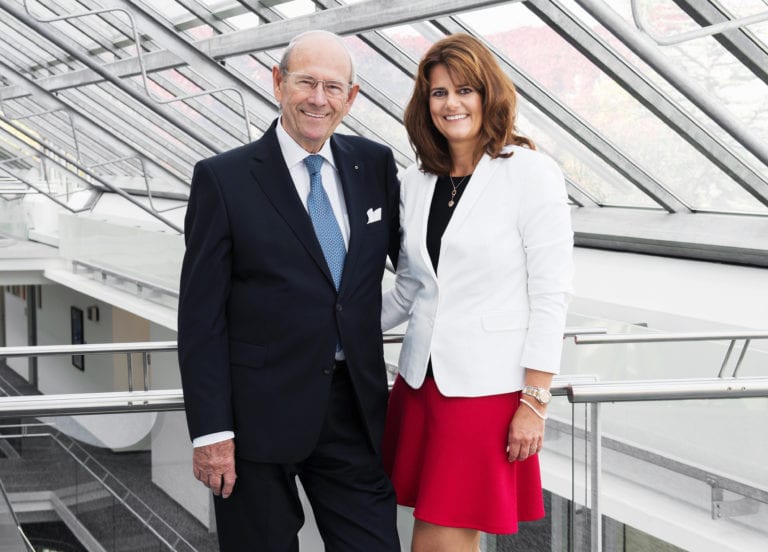SUSTAINABILITY + ECOLOGY
Sustainability responsibility
Closed cycle
Industry and trade are now increasingly incorporating the principles of sustainable economic activity into their corporate strategies.
Corrugated cardboard not only has a closed-loop material cycle (CLMC) that is based on the use of renewable raw materials and thus perfectly meets these requirements (see ‘Ecology’), but – as so eloquently put on the occasion of the Corrugated Cardboard Forum at the FachPack 2009 by the man behind the German Packaging Ordinance and the German Closed Substance Cycle Waste Management Act, Prof. Klaus Töpfer – “Corrugated cardboard can be recycled and is made from renewable materials. The corrugated cardboard industry is furthermore not interested in short-term success, but is in it for the long-run – and this is now also something that consumers are increasingly becoming aware of.”
Distribution practices, logistics and packaging also all play a vital role in considerations of sustainability. In the words of Prof. Matthias Franz from the Department of Packaging Technology at Stuttgart Media University when highlighting the importance of sustainable packaging for both consumers and trade: “Matters to do with nature, whether big or small, cannot be easily quantified or put a figure on”.
However, one thing Prof. Matthias Franz pointed out that we all know for absolutely sure is that “Because it is manufactured from renewable materials, corrugated cardboard is not only a sustainable product but also fulfils multiple important protective, logistics and communication functions.” Some of the concrete advantages presented by cardboard that he listed furthermore included its high strength and simultaneous low mass per unit weight, countless structural design possibilities and numerous printing and surface finishing possibilities.
HANS KOLB Wellpappe is more than aware of the importance of and its responsibility to keep cardboard sustainable. KOLB’s acceptance of this responsibility is reflected in its use of a closed-loop material cycle, which entails KOLB producing its own paper at its plant in Kaufbeuren, whose secondary paper production facility is largely supplied with raw materials in the form of sorted die-cutting waste from KOLB’s other plants.
Corrugated Cardboard
The Wave of Reason
As a manufacturer of environmentally friendly and recyclable products, HANS KOLB Wellpappe feels a particular responsibility to pursue a binding environmental policy. The conservative use of raw materials and use of sustainable energy in modern production procedures has always been a priority at KOLB.
By specifying environmental protection objectives that are binding to both the company as a whole and each one of its employees, KOLB is furthermore hoping to also become a role model in environmental management.

State of the art
We
- Engage in an open and factual dialogue with our customers, relevant authorities and the public and provide the information necessary to foster an understanding of the reciprocal effects between our corporate operations and the environment.
- Inform our staff and business partners about our corporate environmental protection measures concerning the use of products and procedures and empower our staff to take responsibility for and act responsibly with respect to environmental matters.
- Evaluate, monitor and optimise our current effects on the environment. Test and analyse new products and procedures in advance with respect to their effect on the environment.
- Make provisions for avoiding or totally preventing any adverse impact on the environment caused by potential accidents.
- Monitor and, where necessary, intervene and adjust the measures we pursue as part of our environmental protection policy.
